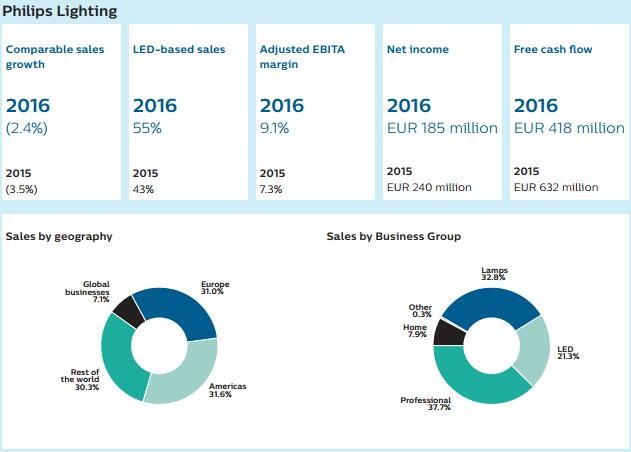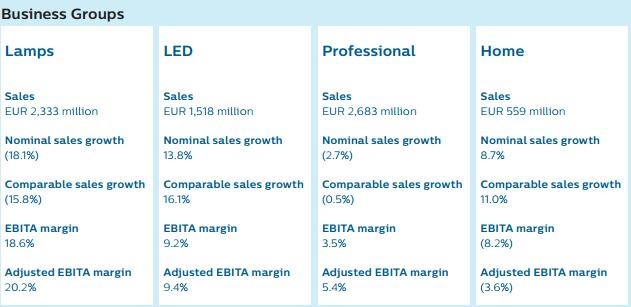Philips Lighting, the global lighting leader, today announced that its sales of sustainable products, systems and services [1] increased from 72% in 2015 to 78% in 2016, with corresponding sustainable sales from 53 in 2015. The euro has increased to 5.5 billion euros in 2016.
In terms of LED business, Philips Lighting achieved 55% revenue in 2016, surpassing 50% for the first time; it increased by 7 percentage points compared to 2015. Previously, Philips Lighting had expected the LED business to achieve a 50% target of the overall business volume in 2015.
However, compared with several traditional lighting companies in China, LED revenue has accounted for more than 60%.


“Sustainability is at the heart of our business. With the 'Sparkling Life, A Better World' program, we have set ambitious targets for sustainable sales and sustainable operations,†said Eric Rondolat, CEO of Philips Lighting. .
Philips Lighting is committed to selling more than 2 billion LED bulbs worldwide by 2020. As of 2016, Philips Lighting has delivered 628 million, effectively reducing 15 million tons of carbon dioxide emissions.
Corportate Knights magazine first released the Clean 200 list in 2016, ranking 200 of the world's largest listed companies based on sustainable sales, with Philips Lighting ranked 8th in the list.
Compared to 2015, Philips Lighting reduced its waste by 41% and continued to drive sustainability across all business levels. Philips Lighting puts 80% of its research and development resources into sustainable innovation.
As a representative of sustainable innovation, Dubai Lamp is nearly 90% more energy efficient than traditional light sources. Developed jointly by Philips Lighting and the Dubai Municipal Government, the product is currently the most energy-efficient product in Philips LED bulbs worldwide.
Sustainable lighting products, systems and services need to lead industry standards at least on a core sustainability indicator. These core indicators include: energy efficiency, packaging, hazardous materials, weight and materials, recycling, convenience, basic lighting needs, and lighting solutions in human text.
The reduction in carbon emissions from Philips LED lights is calculated from market intelligence and statistics, based on the amount of LED product savings in each region and the number of solutions offered by the company.

Differential Mode Inductors,I type Inductors,Common Mode Inductors,Differential Mode Choke Inductor
Xuzhou Jiuli Electronics Co., Ltd , https://www.xzjlelectronic.com